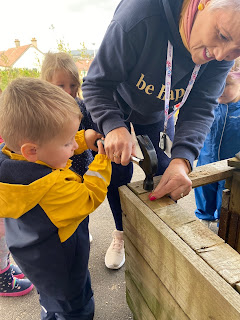A Whole New World
Sometimes it takes a seismic event to stop the world in its tracks and make humankind realise there are other ways we can live this thing called life.
The Coronavirus pandemic has been horrific bringing about loss of
life, almost breaking our NHS and the wider care sector, destroying people’s
dream businesses, keeping families apart and creating pressure, anxiety and
other mental health and well-being issues.
I’d say you could describe it as an event with seismic impact and as
such it’s critically important that we reflect and take from the challenges we
have faced the concept that it is possible to do things differently.
Consider the way, almost overnight, we became a nation where many
professions could, and did, work from home. The suggestion of this pre pandemic
would have been met with disbelief, and the suggestion that it could never
happen, particularly on such a broad scale. But it did.
As we emerge from the restrictions that were imposed on our lives many
people are considering their choices. Life separated from family and friends,
the realisation that work was possible without long and arduous commutes, the
careers people chose and how we, as a nation, respond to those choices, are all
under scrutiny, with a significant number of individuals and organisations not
prepared to go back to old ways of working.
The world of work is changing, if you are an employer how are you
responding?
Flex
Are you offering your team the opportunity to work flexibly?
All workers have the right to request flexible working but for many
their requests have been denied. The UK Government are now consulting with a
view to making this a day one right. The consultation closes on the 1st
December so if you have an opinion you need to respond quickly.
Offering flexible working improves the balance between home and work
life, it supports caring commitments (a growing issue as life expectancies
become longer and we have a bigger aged population), it allows your team
members to pursue interests that contribute to their knowledge, experience and
wellbeing.
It motivates and increases productivity, it delivers increased job
satisfaction and it reduces stress. And it is possible in some shape or form
for all sectors.
In fact, failing to offer flexibility will become a deal breaker for
many new recruits, meaning those employers that won’t flex will miss out on top
talent, which will of course have a negative affect on achieving their business
goals.
Hybrid Working
This one may not be possible in all careers but for many it is a
viable option and it does work. Will you force everyone back to the office?
Will you leave it as entirely up to the individuals or will you create a
framework for hybrid working?
There are so many benefits to a hybrid working model, including;
- Reduced property costs
as less physical space is needed
- The environment benefits
as less people travel in to work each day
- Your team don’t need to
take a day off for things like home repairs to take place, the gas
engineer, plumber etc can come out on a work from home day.
- Better attendance at
work, as where previously someone may have taken a day off sick so as not
to bring their sniffles into the office, they are often well enough to
work from home with no risk of spreading infection. (Obvs important to
take sick time if really unwell).
- Local economies thrive
as people shop locally and use services/suppliers from their home
locality.
I understand there are concerns about the impact on city and town centre businesses but with creative thought we can redesign our cities to be cultural and social hubs. A creative challenge for our town planners perhaps?
And for employers who think this won’t work I would suggest that as
with flexible working, you’re going to have to find a way or you just won’t
attract the best people to your organisation.
Which brings me nicely to my next topic, Hierarchical Management…aargh! I loathe the you do as I say style of managing people, the
control and keep them down method. It’s not fair, it stifles creativity and
passion and turns interesting and interested people into nothing more than
automatons.
It’s a method often used by the kind of employers who won’t consider the
first two points in this article. The kind who say things like, “how do I know
they’ll be working if I let them work from home”, who think home working
equates to watching day time television and who lack trust and confidence in
their team.
Hierarchy is a dead model, we must trust our teams, listen to their voices,
involve them in decision making.
It’s time to flip the pyramid and serve our people. I see my role as
CEO not as the boss (I hate that word) but as the person responsible for
supporting, listening to and guiding the team. I take accountability and know
that I hold responsibility for successes and failures in our teams. If someone
in the team isn’t achieving the objectives of their role there’s usually a reason for
it; either we’ve made the wrong recruitment decision, the support framework
hasn’t been properly set up, the role description isn’t clear or reviews aren’t
happening often enough. It’s rarely ever just that they aren’t doing the job
and bossing them around is not going to change that, instead the solution lies
in values based recruitment, effective support and training, regular reviews
and swift action plans to rectify problems encountered.
I’m not pontificating and saying we’ve got all of this right at FCSS
but I am saying this is our direction of travel.
We do offer flexible working, and have been recognised as one of the Top Ten Flexible Employers in Scotland by Flexibility Works, our leadership, management, and central
support functions are all able to utilise a hybrid working model and we’re quashing
hierarchical management styles. We’re working together to achieve our vision of
a Scotland where no child, family or community misses out on the benefits of
early learning and school age childcare due to barriers around accessibility,
affordability, location or lack of services able to meet specific individual
needs.
Together, we can succeed, the power to create a whole new world for our organisations is in our hands.



Comments
Post a Comment